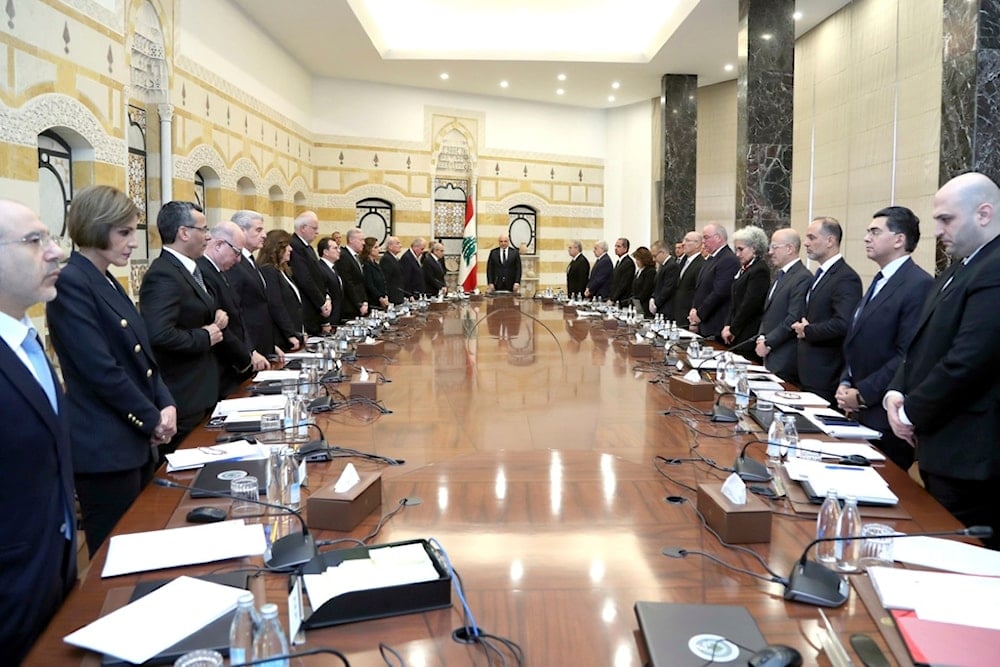Lebanon disarmament plan sparks tensions as ministers threaten boycott
Minister Fadi Makki warns against the government passing major decisions without Hezbollah and Amal ministers amid Lebanon’s push to place weapons under state control.
-

Lebanese President Joseph Aoun, center background, Prime Minister Nawaf Salam, left background, and ministers of the new government at the presidential palace, in Baabda, east of Beirut, Lebanon, Tuesday, Feb. 11, 2025 (AP)
Lebanon's Minister of Administrative Development, Fadi Makki, told Al Mayadeen on Wednesday that holding a cabinet session without a comprehensive political consensus, especially in the absence of ministers from the Amal Movement and Hezbollah, would not serve the public interest.
"I cannot bear to see crucial decisions of this magnitude passed without the presence of Shiite ministers," Makki emphasized.
His comments came a day after Lebanese Prime Minister Nawaf Salam announced, following a cabinet session, that the Lebanese Army has been tasked with drafting a plan of action to ensure that all arms are placed under state control. The plan must be submitted to the cabinet for review no later than August 31.
The session, which was chaired by President Joseph Aoun and held at the Baabda Presidential Palace, dedicated over three hours to discussing the sensitive issue of “exclusive control of weapons” by the state.
Commitment to UNSC Resolution 1701
In his remarks after the meeting, Prime Minister Salam reiterated Lebanon’s commitment to UN Security Council Resolution 1701, as reaffirmed in the ministerial statement, and underlined the state's sovereign right to defend itself against any external aggression.
The Cabinet also agreed to reconvene on Thursday, August 7, to resume discussions on a US-backed proposal currently under review.
According to Al Mayadeen’s correspondent, ministers representing Hezbollah and the Amal Movement, Rakan Nasreddine and Tamara Zein, walked out of the session in protest.
While framed as a technical step, the army’s assignment comes at a time of heightened foreign pressure on Lebanon to address the issue of arms outside state institutions. However, for many Lebanese, particularly within the Resistance camp, any national defense strategy must acknowledge the proven effectiveness of the Resistance in deterring Israeli aggression and preserving Lebanon’s sovereignty.

 4 Min Read
4 Min Read








